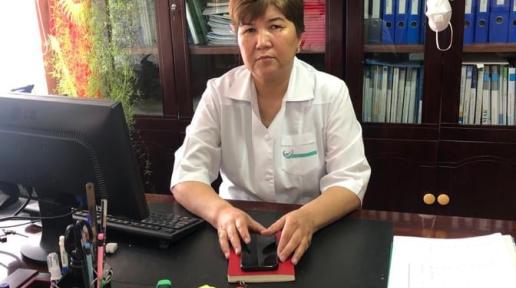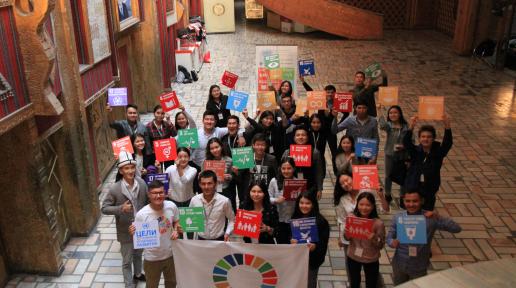Баяндама
22 июль 2025
“A MOMENT OF OPPORTUNITY: SUPERCHARGING THE CLEAN ENERGY AGE”
Excellencies, Ladies and gentlemen,Friends joining us from around the world, The headlines are dominated by a world in trouble. By conflict and climate chaos.By rising human suffering.By growing geo-political divides. But amidst the turmoil, another story is being written.And its implications will be profound. Throughout history, energy has shaped the destiny of humankind – from masteringfire, to harnessing steam, to splitting the atom.Now, we are on the cusp of a new era. Fossil fuels are running out of road. The sun is rising on a clean energy age.Just follow the money.$2 trillion went into clean energy last year – that’s $800 billion more than fossil fuels, and up almost 70% in ten years.And new data released today from the International Renewable Energy Agency shows that solar – not so long ago four times the cost of fossil fuels – is now 41% cheaper.Offshore wind – 53%.And over 90% of new renewables worldwide produced electricity for less than the cheapest new fossil fuel alternative.This is not just a shift in power. This is a shift in possibility.Yes, in repairing our relationship with the climate.Already, the carbon emissions saved by solar and wind globally are almost equivalent to what the whole European Union produces in a year. But this transformation is fundamentally about energy security and people’s security.It’s about smart economics. Decent jobs, public health, advancing the Sustainable Development Goals. And delivering clean and affordable energy to everyone, everywhere. Today, we are releasing a special report with the support of UN agencies and partners -- the International Energy Agency, the IMF, IRENA, the OECD and the World Bank. The report shows how far we have come in the decade since the Paris Agreement sparked a clean energy revolution. And it highlights the vast benefits – and actions needed – to accelerate a just transition globally. Renewables already nearly match fossil fuels in global installed power capacity.And that’s just the beginning. Last year, almost all the new power capacity built came from renewables. And every continent on Earth added more renewables capacity than fossil fuels.The clean energy future is no longer a promise. It’s a fact. No government. No industry. No special interest can stop it. Of course, the fossil fuel lobby of some fossil fuel companies will try – and we know the lengths to which they will go.But I have never been more confident that they will fail – because we have passed the point of no return. For three powerful reasons. First, market economics. For decades, emissions and economic growth rose together. No more. In many advanced economies, emissions have peaked, but growth continues. In 2023 alone, clean energy sectors drove 10% of global GDP growth. In India, 5%. The United States, 6%. China – a leader in the energy transition – 20%. And in the European Union, nearly 33%. And clean energy sector jobs now outnumber fossil fuel jobs – employing almost 35 million people worldwide. Even Texas – the heart of the American fossil fuel industry – now leads the US in renewables. Why? Because it makes economic sense.And yet fossil fuels still enjoy a 9 to 1 advantage in consumption subsidies globally – a clear market distortion. Add to that the unaccounted costs of climate damages on people and planet – and the distortion is even greater. Countries that cling to fossil fuels are not protecting their economies – they are sabotaging them.Driving up costs. Undermining competitiveness.Locking-in stranded assets.And missing the greatest economic opportunity of the 21st century. Excellencies, Dear friends, Second -- renewables are here to stay because they are the foundation of energy security and sovereignty. Let’s be clear: The greatest threat to energy security today is in fossil fuels. They leave economies and people at the mercy of price shocks, supply disruptions, and geopolitical turmoil. Just look at Russia’s invasion of Ukraine. A war in Europe led to a global energy crisis.Oil and gas prices soared.Electricity and food bills followed.In 2022 average households around the world saw energy costs jump 20%. Modern and competitive economies need stable, affordable energy. Renewables offer both. There are no price spikes for sunlight. No embargoes on wind. Renewables can put power – literally and figuratively – in the hands of people and governments. And almost every nation has enough sun, wind, or water to become energy self-sufficient. Renewables mean real energy security. Real energy sovereignty. And real freedom from fossil-fuel volatility.Dear friends, The third and final reason why there is no going back on renewables: Easy access. You can’t build a coal plant in someone’s backyard. But you can deliver solar panels to the most remote village on earth. Solar and wind can be deployed faster, cheaper and more flexibly than fossil fuels ever could.And while nuclear will be part of the global energy mix, it can never fill the access gaps. All of this is a game-changer for the hundreds of millions of people still living without electricity – most of them in Africa, a continent bursting with renewable potential.By 2040, Africa could generate 10 times more electricity than it needs – entirely from renewables. We are already seeing small-scale and off-grid renewable technologies lighting homes, and powering schools and businesses in remote areas. And in places like Pakistan for example, people-power is fueling a solar surge – consumers are driving the clean energy boom. Excellencies,Dear friends, The energy transition is unstoppable. But the transition is not yet fast enough or fair enough. OECD countries and China account for 80% of renewable power capacity installed worldwide. Brazil and India make up nearly 10%. Africa -- just 1.5%. Meanwhile, the climate crisis is laying waste to lives and livelihoods. Climate disasters in small island states have wiped out over 100% of GDP. In the United States, they are pushing insurance premiums through the roof. And the 1.5 degree limit is in unprecedented peril. To keep it within reach, we must drastically speed up the reduction of emissions – and the reach of the clean energy transition. With manufacturing capacity racing, prices plummeting, and COP30 fast approaching… This is our moment of opportunity. We must seize it. We can do so by taking action in six opportunity areas. First – by using new national climate plans to go all-out on the energy transition. Too often, governments send mixed messages:Bold renewable targets on one day. New fossil fuel subsidies and expansions the next. The next national climate plans, or NDCs, are due in a matter of months.They must bring clarity and certainty. G20 countries must lead. They produce 80% of global emissions. The principle of common but differentiated responsibilities must apply but every country must do more. Ahead of COP30 in Brazil this November, they must submit new plans. I invite leaders to present their new NDCs at an event I will host in September, during General Assembly High-level week. These must:Cover all emissions, across the entire economy.Align with the 1.5 degree limit.Integrate energy, climate and sustainable development priorities into one coherent vision.And deliver on global promises: To double energy efficiency and triple renewables capacity by 2030.And to accelerate the transition away from fossil fuels. These plans must be backed by long-term roadmaps for a just transition to net-zero energy systems – in line with global net-zero by 2050.And they must be underpinned by policies that show that the clean energy future is not just inevitable – but investable. Policies that create clear regulations and a pipeline of projects. That enhance public-private partnerships – unlocking capital and innovation. That put a meaningful price on carbon.And that end subsidies and international public finance for fossil fuels – as promised. Second, this is our moment of opportunity to build the energy systems of the 21st century. The technology is moving ahead. In just fifteen years, the cost of battery storage systems for electricity grids has dropped over 90%. But here’s the problem. Investments in the right infrastructure are not keeping up. For every dollar invested in renewable power, just 60 cents go to grids and storage. That ratio should be one-to-one. We are building renewable power – but not connecting it fast enough. There’s three times more renewable energy waiting to be plugged into grids than was added last year.And fossil fuels still dominate the global total energy mix. We must act now and invest in the backbone of a clean energy future: In modern, flexible and digital grids – including regional integration. In a massive scale-up of energy storage. In charging networks – to power the electric vehicle revolution. On the other hand we need energy efficiency but also electrification -- across buildings, transport and industry. This is how we unlock the full promise of renewables – and build energy systems that are clean, secure and fit for the future.Third, this is our moment of opportunity to meet the world’s surging energy demand sustainably.More people are plugging in. More cities are heating up – with soaring demand for cooling. And more technologies – from AI to digital finance – are devouring electricity. Governments must aim to meet all new electricity demand with renewables. AI can boost efficiency, innovation, and resilience in energy systems. And we must take profit in it.But it is also energy-hungry. A typical AI data-center eats-up as much electricity as 100,000 homes. The largest ones will soon use twenty times that. By 2030, data centres could consume as much electricity as all of Japan does today. This is not sustainable – unless we make it so.And the technology sector must be out front. Today I call on every major tech firm to power all data centres with 100% renewables by 2030.And – along with other industries – they must use water sustainably in cooling systems.The future is being built in the cloud. It must be powered by the sun, the wind, and the promise of a better world. ExcellenciesDear friends, Fourth, this is the moment of opportunity for a just energy transition. The clean energy that we must deliver must also deliver equity, dignity and opportunity for all. That means governments leading a just transition. With support, education and training – for fossil fuel workers, young people, women, Indigenous Peoples and others – so that they can thrive in the new energy economy. With stronger social protection – so no one is left behind. And with international cooperation to help low-income countries that are highly-dependent on fossil fuels and struggling to make the shift.But justice doesn’t stop here. The critical minerals that power the clean energy revolution are often found in countries that have long been exploited. And today, we see history repeating. Communities mistreated. Rights trampled.Environments trashed.Nations stuck at the bottom of value chains – while others reap rewards. And extractive models digging deeper holes of inequality and harm.This must end.Developing countries can play a major role in diversifying sources of supply. The UN Panel on Critical Energy Transition Minerals has shown the way forward – with a path grounded in human rights, justice and equity.Today, I call on governments, businesses and civil society to work with us to deliver its recommendations.Let’s build a future that is not only green – but just.Not only fast – but fair. Not only transformative – but inclusive.Fifth, we have a moment of opportunity to use trade and investment to supercharge the energy transition. Clean energy needs more than ambition. It needs access – to technologies, materials, and manufacturing. But these are concentrated in just a few countries. And global trade is fragmenting. Trade policy must support climate policy. Countries committed to the new energy era must come together to ensure that trade and investment drive it forward. By building diverse, secure, and resilient supply chains.By cutting tariffs on clean energy goods.By unlocking investment and trade – including through South-South cooperation.And by modernizing outdated investment treaties – starting with Investor-State Dispute Settlement provisions. Today, fossil fuel interests are weaponizing these provisions to delay the transition, particularly in several developing countries. Reform is urgent. The race for the new must not be a race for the few. It must be a relay – shared, inclusive and resilient. Let’s make trade a tool for transformation. Sixth and finally, this is our moment of opportunity to unleash the full force of finance – driving investment to markets with massive potential. Despite soaring demand and vast renewables potential -- developing countries are being locked out of the energy transition.Africa is home to 60% of the world’s best solar resources. But it received just 2% of global clean energy investment last year. Zoom out, and the picture is just as stark. In the last decade, only one in every five clean energy dollars went to emerging and developing countries outside China. To keep the 1.5 degree limit alive -- and deliver universal energy access – annual clean energy investment in those countries must rise more than fivefold by 2030. That demands bold national policies. And concrete international action to: Reform the global financial architecture.Drastically increase the lending capacity of multilateral development banks -- making them bigger, bolder, and better able to leverage massive amounts of private finance at reasonable costs; And take effective action on debt relief – and scale up proven tools like debt for climate swaps. Today, developing countries pay outlandish sums for both debt and equity financing – in part because of outdated risk models, bias and broken assumptions that boost the cost of capital. Credit ratings agencies and investors must modernize.We need a new approach to risk that reflects:The promise of clean energy.The rising cost of climate chaos. And the danger of stranded fossil fuel assets.I urge parties to unite to solve the complex challenges facing some developing countries in the energy transition – such as early retirement of coal plants. Excellencies,Dear friends,The fossil fuel age is flailing and failing. We are in the dawn of a new energy era. An era where cheap, clean, abundant energy powers a world rich in economic opportunity.Where nations have the security of energy autonomy.And the gift of power is a gift for all. That world is within reach. But it won’t happen on its own. Not fast enough. Not fair enough.It is up to us. We have the tools to power the future for humanity. Let’s make the most of them. This is our moment of opportunity. And I Thank you.







